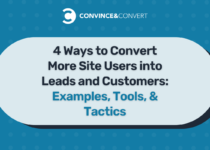Is Search Dying? How Social Discovery and AI Are Reshaping the Future of Content
For over two decades, Google has dominated the digital discovery landscape. But today, the search engine that once seemed unshakable is showing cracks. The majority of Google searches now end without a user clicking through to a website, a phenomenon known as “zero-click search.
Zero-Click Searches: The New Norm
- As of 2024, an estimated 65% of all global Google searches result in zero clicks, up from around 50% in 2019. This means most users find the information they need directly on the search results page, without visiting external sites.
- The trend is even more pronounced on mobile devices, where convenience drives users to accept quick answers rather than explore further.
What’s Driving the Shift?
Several factors have contributed to the surge in zero-click searches
AI-Generated Answers (AI Overviews)
Google’s introduction of AI Overviews (formerly known as Search Generative Experience or SGE) has made it possible for users to get comprehensive answers directly in search results. These AI-generated summaries can cause organic traffic to drop by 15% to 64%, depending on the industry and search type.
Featured Snippets
These answer boxes provide concise responses at the top of the results page, often satisfying the user’s intent without a click. The introduction of featured snippets has demonstrably reduced click-through rates (CTR) for both the snippet and the top organic result.
People Also Ask (PAA) Modules
PAA sections present related questions and answers, allowing users to explore more information without leaving the SERP. On mobile, 75% of searches now include PAA sections.
Knowledge Panels and Local Packs
For queries about people, places, or businesses, knowledge panels and local packs provide instant answers and directions, further reducing the need to click through
Impact on Click-Through Rates and Organic Traffic
Organic CTR Decline
For queries with AI Overviews, organic CTR dropped from 1.41% to 0.64% year-over-year. Even when AI Overviews are absent, organic CTR is under pressure from other SERP features.
Paid CTR Also Down
Paid ad CTRs have also declined, regardless of AI Overview presence, indicating that the overall structure of the SERP is reducing engagement with both organic and paid listings.
Compounding the challenges facing Google and the broader web is a marked rise in user fatigue and distrust. The internet in 2025 is flooded with SEO-optimized, often shallow or repetitive content, much of it generated by AI. This saturation has led many users to question whether search results genuinely address their needs or merely serve the priorities of algorithms.
According to a 2025 Gartner survey, 52% of Gen Z respondents reported feeling overwhelmed by the sheer volume of information online and expressed a preference for platforms where content is more “curated by people like them,” reflecting a desire for authenticity and human curation over algorithmic sorting.
What This Means for Content Strategy
So, does SEO still matter? Yes — but not in the way it used to.
The future of content lies in multi-platform relevance. Brands must shift from solely optimising for Google to designing content ecosystems that can be surfaced via social feeds, AI responses, and embedded experiences. Think bite-sized video explainers for TikTok, quotable carousel posts for LinkedIn, Reddit-friendly product walkthroughs, and schema-structured articles designed for LLM training and citation.
Content strategy now demands a dual focus: depth and distribution. Long-form, high-trust content still matters — but it must coexist with formats that resonate in short attention spans and mobile-first experiences. Creators and businesses must think like media companies, diversifying not just content formats but the discovery paths through which audiences engage.
Additionally, authority is shifting. Rather than relying solely on domain ratings and backlinks, credibility is increasingly determined by resonance and shareability. If your content is widely referenced in AI tools or consistently re-shared in niche communities, it builds equity beyond Google.
Looking Ahead: The Future of Search and Content
We’re heading into a blended era where search, discovery, and conversation converge. Over the next 3–5 years, expect to see:
- AI-first browsing: Native AI companions embedded in Chrome, Edge, and Safari that offer proactive recommendations based on context and past behaviour.
- Social-SEO hybrid strategies: Content built specifically for search visibility within social platforms — optimised hashtags, captions, and alt text are already proving essential.
- Greater emphasis on first-party data: As cookies fade, brands will rely more on behavioural data from owned platforms to guide content production.
- Platform-native search ads: Search advertising will expand within TikTok, Instagram, Reddit, and even AI tools — transforming the landscape of paid search.
- Rise of content reputation management: Just as SEO once involved link audits and keyword research, content teams will track where and how their brand is being referenced in AI outputs and peer discussions.
The question isn’t whether search is dying — it’s whether we’re ready for what comes next. Discovery is no longer a one-way street from user to search engine. It’s a dynamic, distributed ecosystem where attention flows through conversations, creators, and code.
To future-proof your strategy, stop thinking like a content publisher and start thinking like a digital guide. Create content that not only informs but travels, adapts, and connects. Your next audience won’t be searching for you — they’ll be discovering you in places you haven’t even thought to look.

